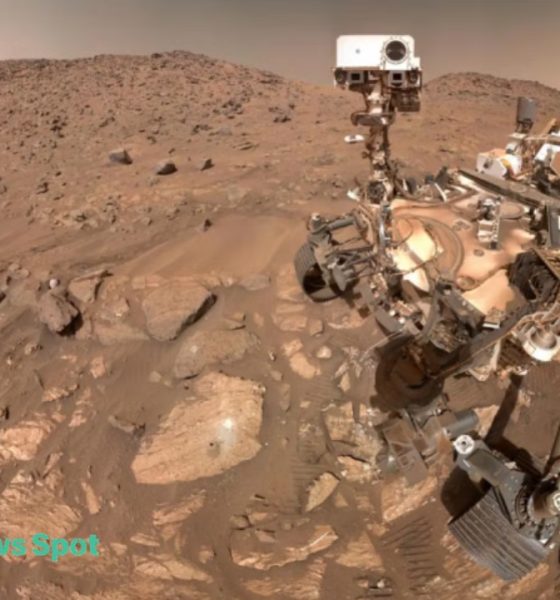World
Iran’s leader Khamenei observes Israel eroding his inner group.
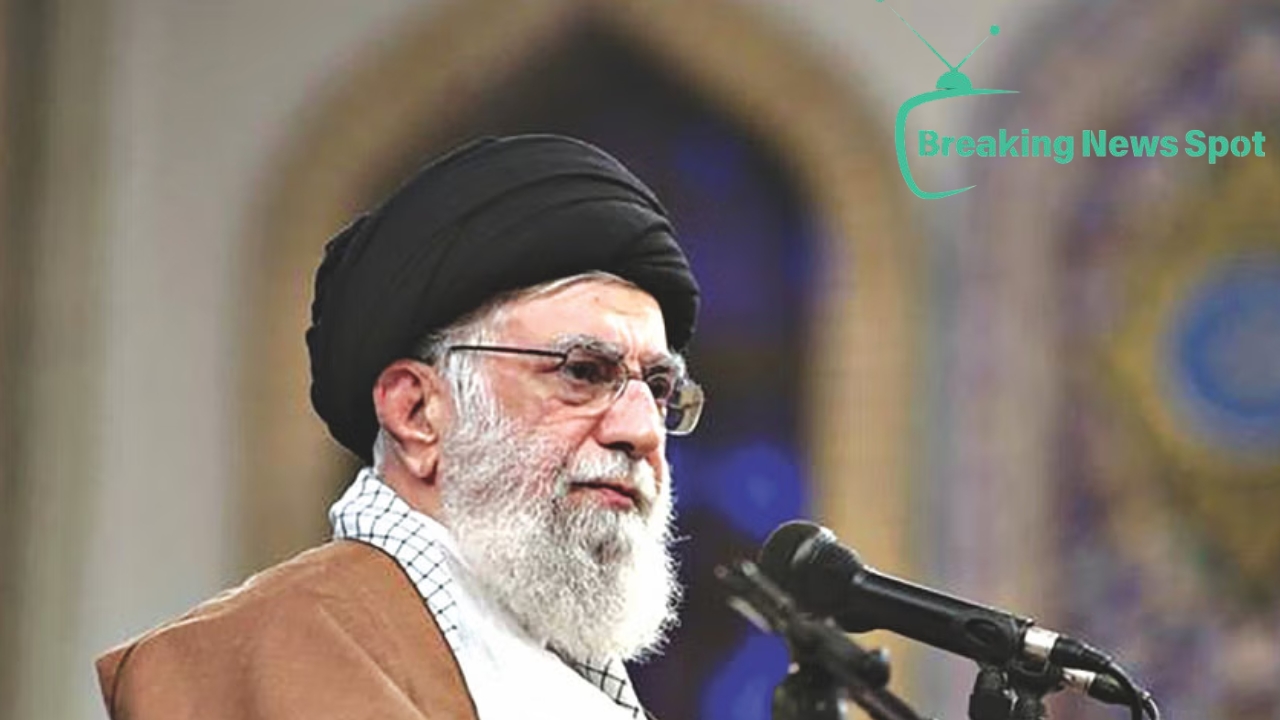
Ayatollah Ali Khamenei, the 86-year-old Supreme Leader of Iran, appears to be growing more and more alone.
According to five persons familiar with Khamenei’s decision-making process, Israel airstrikes have killed his top military and security advisors, creating significant gaps in his inner circle and increasing the likelihood of strategic blunders.
One of the people who frequently meets with Khamenei said that it would be “extremely dangerous” for Iran to miscalculate on defense and internal stability matters.
Since Friday, a number of high-ranking military leaders have been assassinated, including spymaster Mohammad Kazemi, its aerospace chief Amir Ali Hajizadeh, who oversaw Iran’s ballistic missile program, and Khamenei’s principal advisors from the Revolutionary Guards, Iran’s elite military force: Hossein Salami, the Guards’ overall commander.
According to the sources, which include two close officials who frequently attend meetings with the supreme leader and three people who attend or have attended meetings with the leader on important issues, these men were among the Guards commanders, clerics, and politicians who made up the inner circle of the leader, which numbered about 15 to 20.
According to everyone, the loose group meets on an as-needed basis when Khamenei’s office invites pertinent advisors to his Tehran residence to debate a significant decision. They stated that members are distinguished by their steadfast devotion to him and the Islamic Republic’s philosophy.
Having been imprisoned prior to the 1979 revolution and severely injured in a bombing before taking power in 1989, Khamenei is adamant about upholding Iran’s Islamic form of government and harbors a strong suspicion of the West.
He has the authority to declare war, exercise ultimate command over the armed forces, and nominate or remove high-ranking officials, such as judges and military commanders, within Iran’s political structure.
According to one source who attends meetings, Khamenei values advice, listens carefully to different points of view, and frequently asks his counselors for further information, but he still makes the final choice on significant issues.
“There are two things to say about Khamenei: he is very cautious and uncompromising. He is quite careful. Alex Vatanka, director of the Iran Program at the Middle East Institute think tank in Washington, stated that this is the reason he has held power for so long.
“Khamenei is pretty well placed to do the basic cost-benefit analysis which really fundamentally gets to one issue more important than anything else: regime survival.”
THE SON OF KHAMENEI AT THE FORE
The emphasis on survival has been tested on numerous occasions. In 1999, 2009, and 2022, Khamenei used the Revolutionary Guards and the Basij militia, which is associated with them, to put an end to nationwide demonstrations.
Although the security forces have consistently been able to defeat protesters and reinstate government authority, years of Western sanctions have resulted in enormous economic suffering that experts warn may eventually spark internal instability.
The stakes for Khamenei, who is facing a more intense conflict with Israel, could hardly be higher. Israel has launched airstrikes against military and nuclear targets and personnel, prompting retaliatory Iranian missile firing.
Top advisors on political, economic, and diplomatic matters are among the other insiders who have not been the targets of Israel’s strikes, according to the five persons with knowledge of Khamenei’s decision-making process.
According to two of the sources, Khamenei assigns these advisors to deal with problems as they come up, allowing him to directly influence a broad range of organizations in the political, cultural, military, security, and economic spheres.
According to those with information, Khamenei’s office operates in this manner, including in bodies ostensibly under the elected president, which means it frequently gets engaged in carrying out even small projects in addition to the most important state issues.
According to the sources, his son Mojtaba has been increasingly important in this process over the past 20 years, assuming a role that bridges the gaps between the various organizations, personalities, and groups to collaborate on certain topics.
The people noted that Mojtaba, a mid-ranking cleric who some insiders believe could succeed his aging father, has developed strong relationships with the Guards, which have given him more clout in Iran’s political and security establishment.
According to the sources, Ali Asghar Hejazi, Khamenei’s office deputy of political security issues, has been involved in delicate security choices and is sometimes referred to as Iran’s most prominent intelligence official.
According to the people, former foreign ministers Ali Akbar Velayati and Kamal Kharazi, former parliament speaker Ali Larijani, and head of Khamenei’s office Mohammad Golpayegani continue to be trusted advisors on matters of domestic and diplomatic policy, including the nuclear conflict.
The top echelons of a military force that Khamenei has placed at the center of authority since taking over as supreme leader in 1989 and that he depends on for both internal security and regional strategy are still severely damaged by the loss of the Revolutionary Guards commanders.
The Guards report directly to Khamenei, who also ensures that their land, air, and sea branches have the best military equipment and grants their commanders a significant state role. In contrast, the regular army chain of command passes through the defense ministry under the elected president.
As Iran’s “Axis of Resistance” coalition has been thrashed by Israel, Khamenei has recently lost additional important advisers in the area, further isolating him at one of the most perilous times in the Islamic Republic’s history.
Syrian President Bashar al-Assad was deposed by rebels in December, and Hassan Nasrallah, the leader of Hezbollah and a close friend of the Iranian leader, was killed by an Israeli airstrike in September of last year.
World
Trump gives Hamas a “final warning” on the captives.
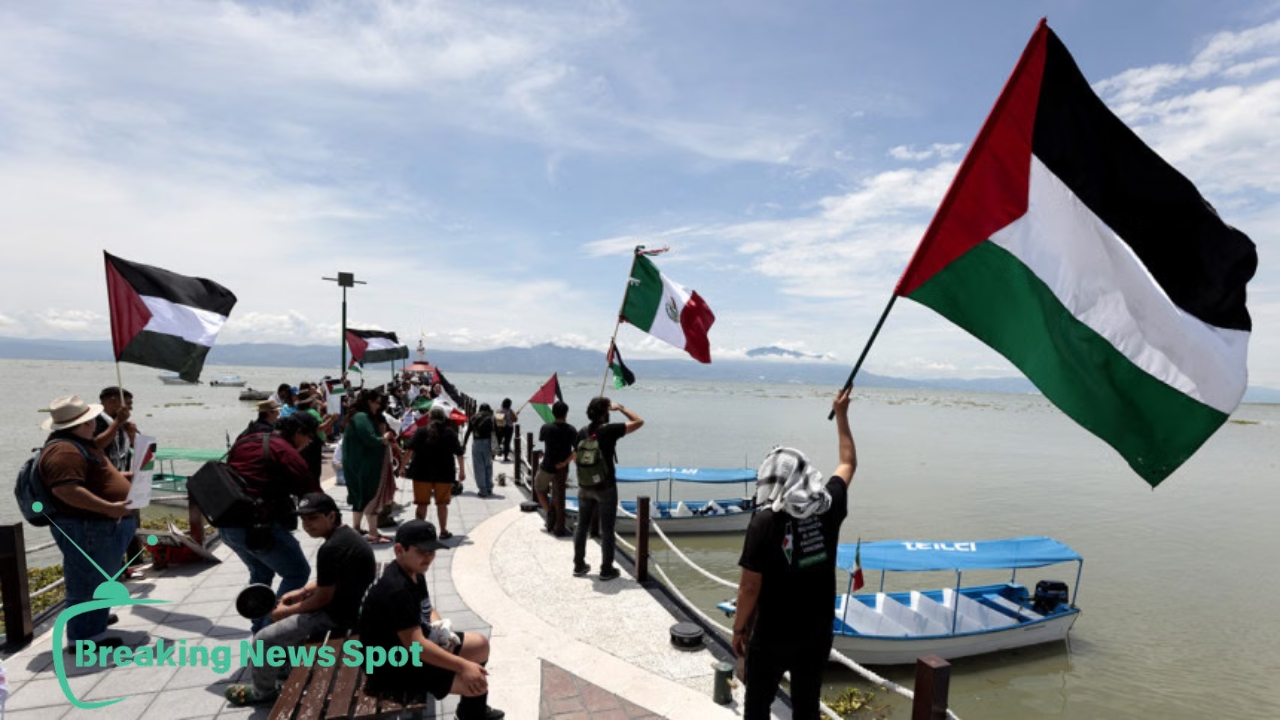
On Sunday, US President Donald Trump issued a “last warning” to Hamas, stating that the Palestinian militant organization must agree to a settlement that will free the prisoners in Gaza.
“My demands have been accepted by the Israelis. It’s time for Hamas to come around too. I’ve told Hamas what will happen if they don’t accept. Trump stated on social media, “This is my last warning,” without providing any other details.
Hamas expressed its readiness to “immediately sit at the negotiating table” in a statement issued shortly after, citing “some ideas from the American side aimed at reaching a ceasefire agreement.”
White House envoy Steve Witkoff delivered Hamas a fresh ceasefire and hostage-resolution plan for Gaza last week, according to U.S. news agency Axios.
Although the White House has not disclosed any information on the plan, Trump stated late Sunday that “you’ll be hearing about it pretty soon,” painting a favorable picture of the talks.
“We had some excellent conversations. “There could be positive outcomes,” he informed reporters. “I think we’re going to have a deal on Gaza very soon.”
Trump sent Hamas a similar ultimatum in early March, stating that if it did not immediately release all surviving captives and give over the corpses of the murdered hostages, “it is OVER for you.”
The Hostages and Missing Families Forum, an Israeli advocacy organization, hailed the US president’s most recent action as a “true breakthrough.”
During the catastrophic October 7, 2023, onslaught on Israel, Hamas forces captured 251 prisoners, with 47 reportedly remaining in Gaza.
According to the Israeli military, 25 of them have died. Israel is requesting that their remains be returned.
– Assault on Gaza City –
Trump and Hamas’ remarks coincided with Israel’s army bombing a residential skyscraper in Gaza City on Sunday, the third in as many days, after Prime Minister Benjamin Netanyahu’s announcement that the military was “deepening” its attack on the strategic city.
When the Al-Roya tower was struck, witness Mohammed Al-Nazli told AFP that it “felt like an earthquake.”
Israeli bombardment on Sunday killed at least 48 Palestinians, according to Mahmud Bassal, spokesperson for the Gaza civil defense department.
Under the same pretext that Hamas had utilized them as observation posts, the air force has destroyed two other residential high-rises.
About 100,000 people have already fled Gaza City, according to Netanyahu, who blamed Hamas for attempting to obstruct evacuations and for using civilians as “human shields.”
Concerns that the already terrible humanitarian situation for Palestinians residing in the region may worsen have been heightened by the escalation.
Fearing for the safety of hostages said to be held in Gaza City, Israeli demonstrators flocked to the streets on Saturday to demand that their government revoke the decision to take the city.
According to an AFP count based on Israeli data, 1,219 persons were killed in the October 7, 2023 strike, the majority of them were civilians.
According to the United Nations-reliable health ministry numbers in Hamas-run Gaza, Israel’s retaliatory operation has killed at least 64,368 Palestinians, the majority of whom were civilians.
AFP is unable to independently confirm the tolls and information supplied by the Israeli military or the civil defense service because to media restrictions in Gaza and access issues in several regions.
World
Modi of India claims that relations with the US are still “very positive.”
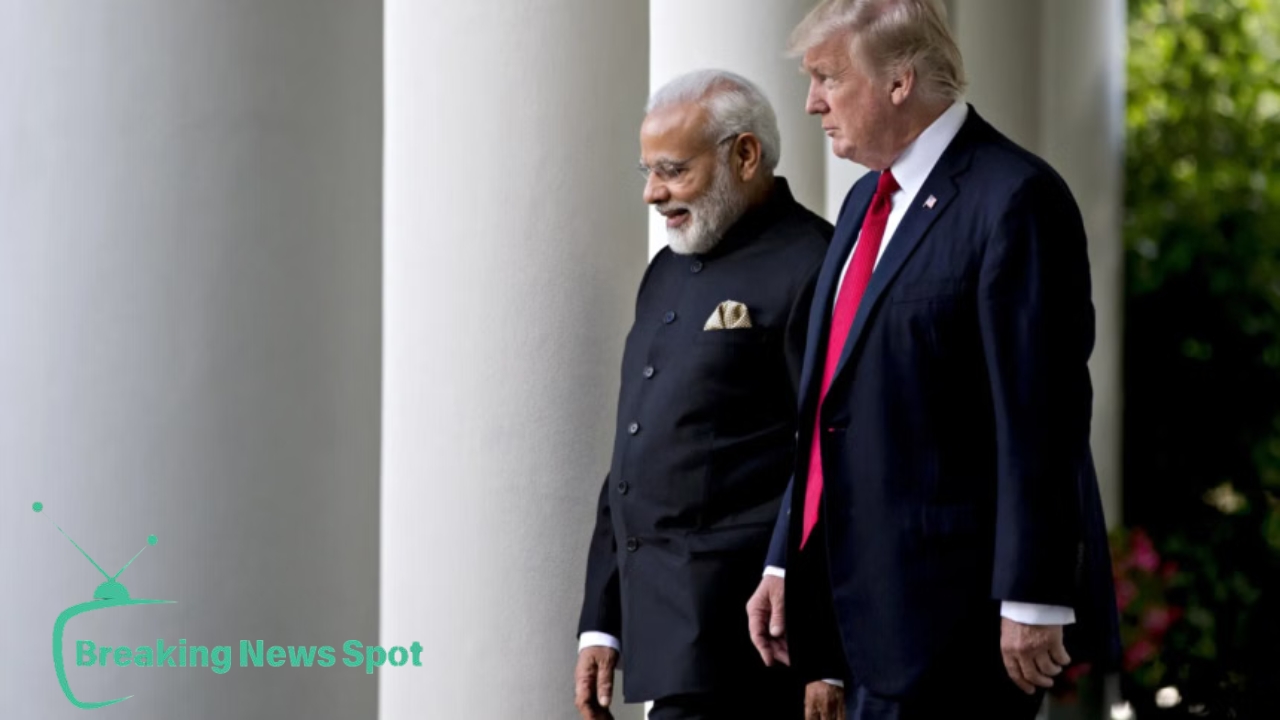
Following US President Donald Trump’s reaffirmation of their personal friendship and his downplaying of his previous comments about “losing India” to China, Indian Prime Minister Narendra Modi said on Saturday that Washington and New Delhi still had “very positive” connections.
The trade comes amid tensions after Washington accused New Delhi of supporting Moscow’s murderous attacks on Ukraine by buying Russian oil and levied tariffs of up to 50% on Indian goods.
Link to Google News Follow The Daily Star’s Google News channel to stay up to date on all the latest news.
Right-wing populists Trump and Modi, however, have been close since the US president’s first term.
Modi wrote on X that India and the US had a “very positive and forward-looking comprehensive and global strategic partnership” and that he “deeply appreciate and fully reciprocate President Trump’s sentiments and positive assessment of our ties.”
Trump previously declared to reporters that he “will always be friends with Modi of course.”
“The relationship between the United States and India is unique. Trump downplayed his earlier comments about “losing India” to China, saying, “There is nothing to worry about.”
Trump previously declared to reporters that he “will always be friends with Modi of course.”
“The relationship between the United States and India is unique. Trump downplayed his earlier comments about “losing India” to China, saying, “There is nothing to worry about.”
A thaw between the two Asian giants was indicated last week when Modi made his first trip to China in seven years to attend a Shanghai Cooperation Organization meeting.
Trump has come off as annoyed in New Delhi as he tries to claim credit for his alleged Nobel Prize-worthy diplomacy in mediating peace between India and Pakistan after the two nuclear-armed neighbors engaged in their deadliest confrontation in decades in May.
Since then, India, which vehemently opposes any outside intervention on Kashmir, has ignored Trump.
World
Toyota cuts its profit forecast because of US tariffs.
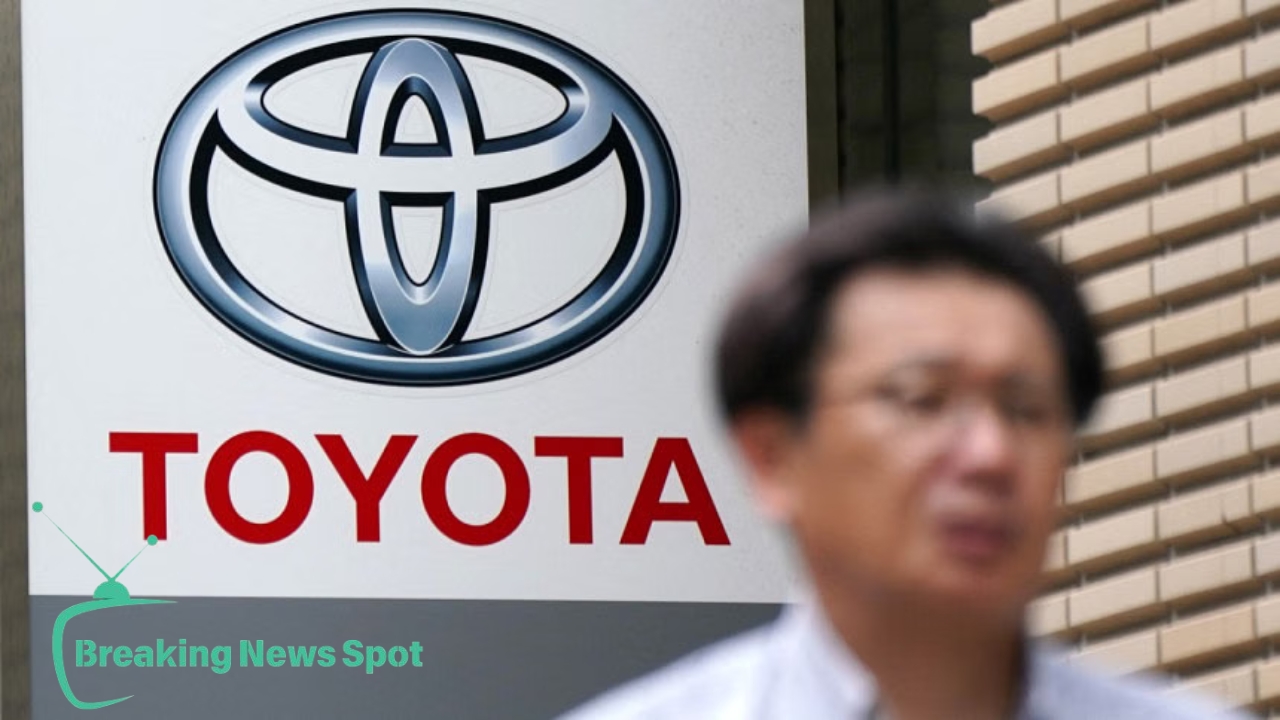
The impact of US tariffs caused Japanese auto manufacturer Toyota to lower its year net profit prediction on Thursday to 2.66 trillion yen ($18.06 billion).
“Due to the impact of US tariffs and other factors, actual results showed decreased operating income, and the forecast has been revised downward,” the business stated in a statement. In Tokyo afternoon trading, its stock dropped 0.6 percent.
Japan and its vital auto industry suffered a serious setback in April when the Trump administration levied a 25 percent tax on Japanese automobile imports into the US.
In July, Tokyo and Washington announced a trade agreement that would reduce that tax to 15 percent and offer some relief to the industry, although it is unclear when that agreement will go into effect.
Additionally, it is unclear if the vehicle tax and other “reciprocal” levies will be capped at 15 percent or if they will be added to the ones that were already in place prior to Trump’s trade war.
Due to an existing 2.5 percent tax on the auto industry, the current duty is 27.5 percent.
Revenues in Toyota’s first quarter from April to June were up 3.5 percent, but net income decreased by 36 percent.
-

 Tech6 months ago
Tech6 months agoDo you frequently use ChatGPT? A study says that you’re lonely.
-

 Sports6 months ago
Sports6 months agoMessi comes back and scores in less than two minutes.
-

 Sports7 months ago
Sports7 months agoThey will make IPL a hit
-

 Entertainment7 months ago
Entertainment7 months agoDue to his mental health issues, David Kushner has cancelled his tour.
-

 Entertainment7 months ago
Entertainment7 months agoWhy did Juhi reject Salman?
-

 World7 months ago
World7 months agoIsrael continues its Gaza attack, killing a journalist and issuing evacuation orders.
-

 Fashion7 months ago
Fashion7 months agoBefore getting your ears pierced, here are some things to consider
-

 Tech7 months ago
Tech7 months agoXiaomi brings Redmi Note 14











